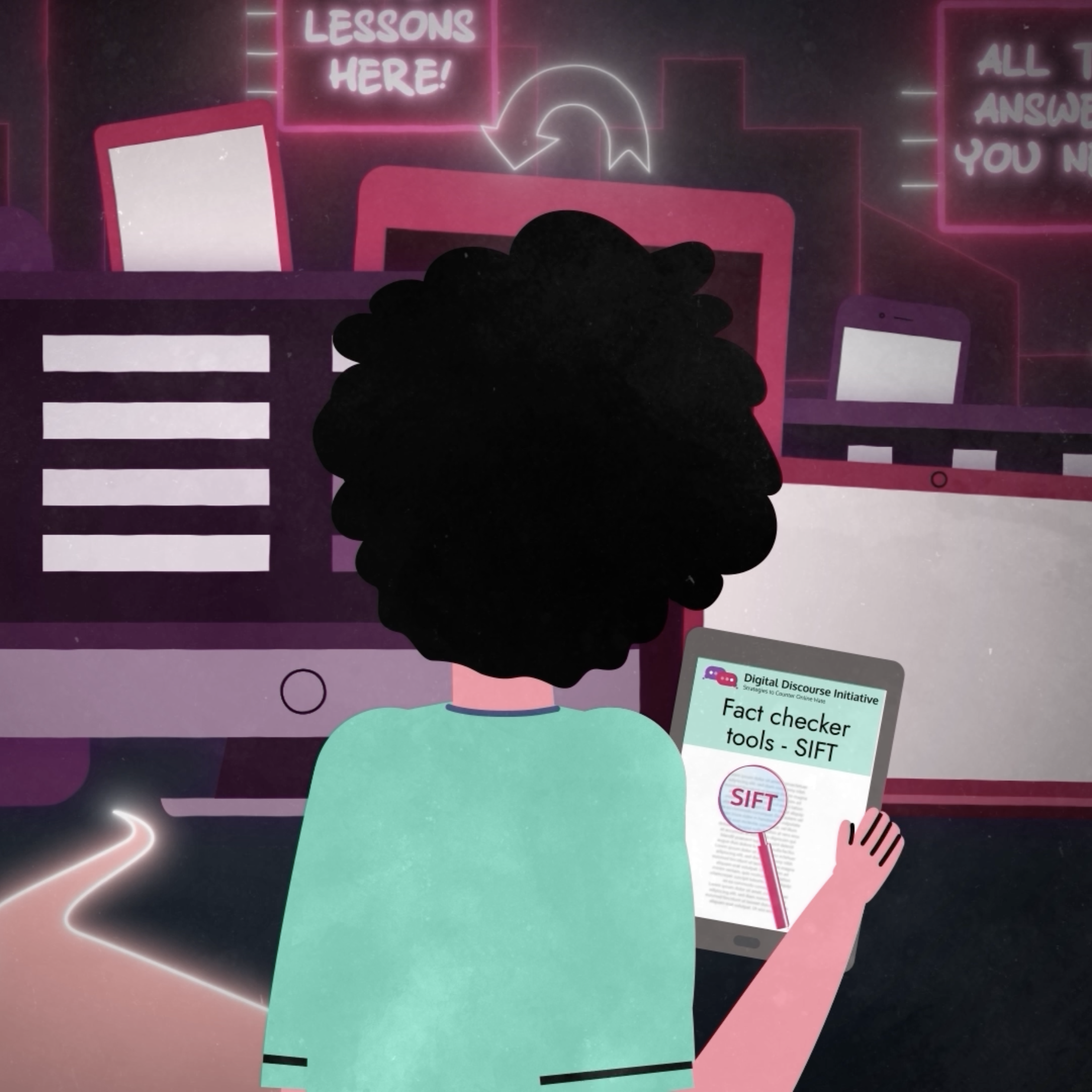Breaking the habit: social media use among young people
Excerpt from Insight magazine
24 Apr 2025
In the spring issue of our member magazine Insight, published in March 2025, experienced voices shared their perspectives on social media use among young people and keeping children safe online. Discussions in the news this week have raised further alarm bells regarding the addictive and harmful nature of young people spending too much time online.
Here, Jordan Daly, Co-Founder and Director of Time for Inclusive Education (TIE), shares his perspective on this important issue, exploring what urgent action is needed and highlighting a new tool to help school staff to counter disinformation and online hate.
Children and young people are increasingly exposed to hate, extremism, and disinformation on social media platforms. Data from Ofcom shows that a quarter of children aged five to seven and 80% of 16- and 17-year-olds have active TikTok accounts. In 2022, Statista reported that children aged four to 18 in Britain spend an average of 114 minutes daily on the app.
The Institute for Strategic Dialogue (ISD) conducted a study of TikTok, analysing 1,030 videos from 491 accounts. They found 312 videos promoting white supremacy, 90 promoting anti-LGBT content, 58 promoting misogyny, and 273 glorifying extremist ideologies. This was being amplified by algorithms designed to boost sensationalist or emotive content to increase engagement.
The effects of this are evident in Scottish schools, where teachers have expressed concerns about the role of online platforms in spreading hate. In 2024, we led focus groups with over 200 pupils between S3 and S6 across Scotland. They shared their experiences with the extreme hate they encountered online, particularly misogyny, homophobia, and racism.
Pupils were worried about the “normalisation” and “minimisation” of online hate, where harmful content is reduced to jokes or trolling. This not only desensitises young people to prejudice but also contributes to an increase in prejudice-based bullying in schools. The young people also struggled to discern what was true online and discussed encountering harmful conspiracy narratives.
This is an urgent issue. With social media platforms removing fact-checking services, schools and teachers need the right tools to help pupils navigate online spaces safely, free from information manipulation and division.
To address this, we’ve partnered with ISD to combine our expertise in anti-prejudice education and counter-extremism strategies. Together, we have launched the ‘Digital Discourse Initiative’ in Scotland. This includes a free online professional learning module to help teachers and school staff counter online hate, identify disinformation, and support the development of critical thinking and digital media literacy.
The course, developed with experts, covers social media, disinformation, and online hate. It provides evidence-based strategies for schools to address these issues and includes a case analysis on radical misogyny and the ‘Manosphere’ created by Zero Tolerance.
Online hate and disinformation are growing, increasingly targeted at marginalised communities with dehumanising narratives and dangerous rhetoric that can lead to violence, bullying, and discrimination offline.
As a user of social media platforms, I can see that they feel more divided, more extreme, and more toxic than they did just a few years ago. I can also see the real-world consequences of this. If you feel that way too, remember that children and young people are using the same platforms that we are.
Experts are warning that disinformation and polarisation threaten democracy. Education is an essential defence.
Teachers and school staff can access the Digital Discourse Initiative professional learning for free via digitaldiscourse.scot
For further information on Time for Inclusive Education’s work and to access school services, visit tie.scot
This is an excerpt from an article published in Issue 7 of Insight.
Members can access the full issue, find out more here.
Not a member? Click here for more information about membership
Non-members are also invited to subscribe for just £10 per year. To find out more about a digital subscription, email Sophie: sward@childreninscotland.org.uk

About the Author
Jordan Daly is Co-Founder and Director of Time for Inclusive Education
Click here for more
Digital Discourse Initiative
Learn more about the work of Time for Inclusive Education and The Institute for Strategic Dialogue
Learn more
Insight magazine, Issue 7
The latest issue of our biannual member magazine, Insight, is out now
Click here for more
Annual Conference 2025
Making Space for Voices: Join our Annual Conference in Glasgow on 28 and 29 May 2025
Find out more